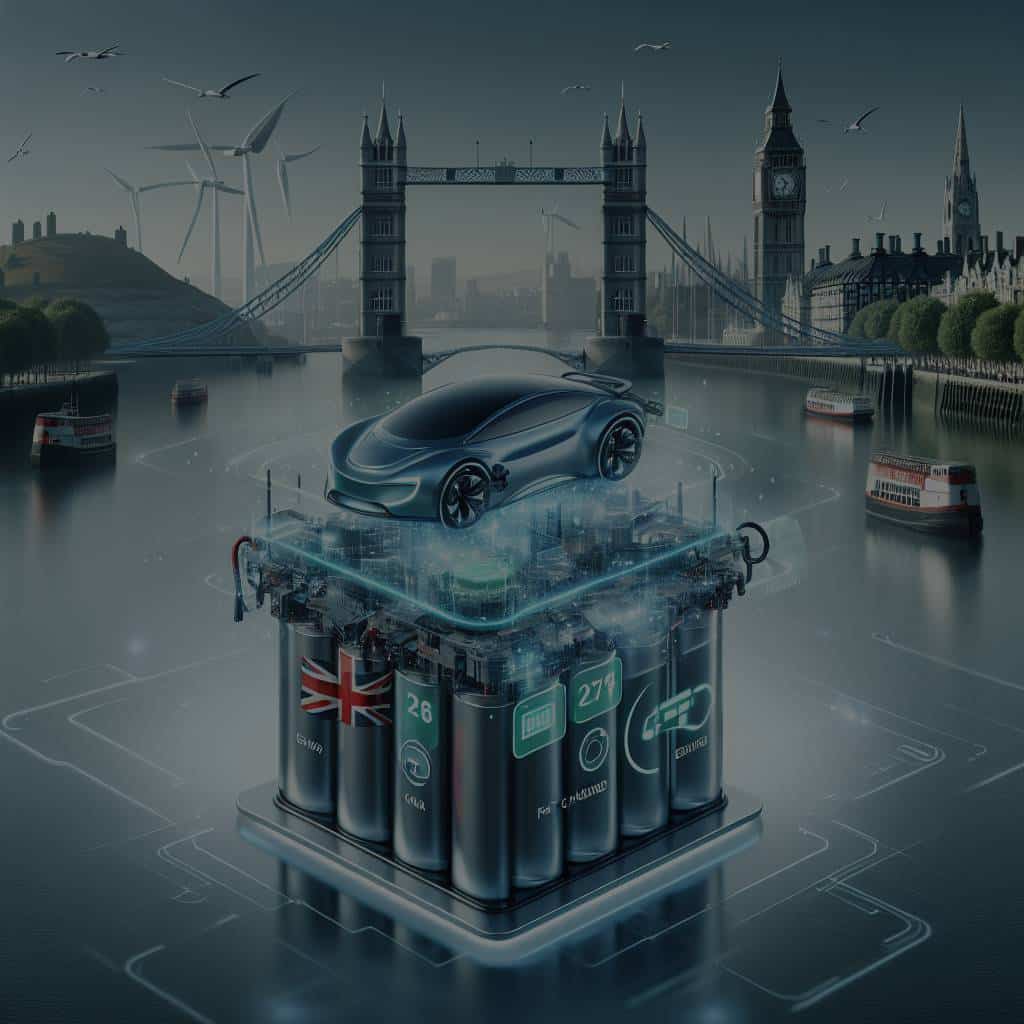What Are the Latest Advances in Electric Vehicle Battery Technology in the UK?

As we shift towards more sustainable methods of transportation, electric vehicle (EV) technology continues to evolve at a rapid pace. A key component of this technology is the battery, intrinsic to the performance and efficiency of these vehicles. Batteries have come a long way from their early days, and the UK is at the forefront of these advances. This article will delve into the latest developments in EV battery technology in the UK, discussing aspects like lithium-ion cells, solid-state batteries, charging technology, and government initiatives for EV production.
Lithium-Ion Batteries
Lithium-ion batteries have been the poster child of electric vehicle technology for years now. This type of battery uses lithium ions as a key ingredient, which move from the negative electrode to the positive electrode during discharge, and back again when charging.
A lire également : How to Implement Green Roofs in UK’s Urban Planning for Environmentally Friendly Cities?
The biggest advantages of lithium-ion batteries are their high energy density and long lifecycle. This makes them perfect for EVs, but there’s always room for improvement. Recent research has focused on increasing the energy density and extending the lifespan of these batteries even further.
A significant advancement in this area is the development of lithium-sulphur batteries. These batteries promise to offer higher energy storage capacity and longer range, overcoming the primary limitations of traditional lithium-ion batteries. The UK government has invested heavily in this technology, with major automotive companies and universities working in collaboration to bring this to the market.
Dans le meme genre : What Are the Legal Implications of AI Contracts in the UK Business Sector?
Solid-State Batteries
Solid-state batteries are another major breakthrough in the EV battery domain. Unlike the liquid electrolyte used in lithium-ion batteries, solid-state batteries use a solid electrolyte. This can lead to significant improvements in energy density, safety, and lifespan.
The main challenge for solid-state batteries is their manufacturing process, which is more complex and currently more expensive than that of lithium-ion batteries. However, research and development in the UK are making strides to overcome these hurdles.
For instance, a UK-based startup called Ilika has developed a method for producing solid-state batteries that can be scaled up for mass production. The company’s Stereax batteries offer an energy density that is up to twice as high as traditional lithium-ion batteries, opening the door for EVs with greatly increased range.
Charging Technology
Charging technology is an essential part of the equation for EVs. Consumers require an infrastructure that allows for convenient and fast charging. The UK has made notable advancements in this area as well.
Several UK companies are pioneering wireless charging technology, which could make charging EVs as easy as parking your car. This technology uses electromagnetic fields to transfer energy between two objects, eliminating the need for a physical connector.
Meanwhile, fast charging technology is also advancing at a rapid pace. Companies like BP Pulse and Pod Point are leading the charge, offering superfast charging stations that can recharge an EV battery to 80% in as little as 20 minutes.
Government Initiatives and EV Production
The UK government is playing a pivotal role in accelerating the advancement of EV battery technology. In 2020, the government announced a plan to ban the sale of new petrol and diesel cars by 2030, providing a significant impetus to the EV industry.
Moreover, the UK government has launched the Faraday Battery Challenge, a £246 million investment to support the research, development, and production of advanced batteries in the UK. This initiative aims to make the UK a world leader in EV battery technology and production.
Several automotive manufacturers are also rising to the challenge, with major EV manufacturing plants being set up in the UK. For instance, Britishvolt has announced plans to build the UK’s first gigafactory, focusing on the production of lithium-ion batteries for EVs.
The Future of EV Battery Technology
So, what does the future hold for EV battery technology in the UK? The focus will continue to be on increasing energy efficiency, expanding range, reducing charging times, and improving safety. With the continued support of the government and rapid advancements in technology, the future of EV battery technology in the UK looks bright.
Key areas of research include the development of more advanced lithium-ion batteries, such as lithium-sulphur and lithium-air batteries. Solid-state batteries are also expected to mature and become more commercially viable. In terms of charging technology, wireless and superfast charging are set to become the norm.
While there are still many challenges to overcome, the progress made so far is promising. The UK is positioned to become a global leader in EV battery technology, driving the transition to a more sustainable and eco-friendly future.
LFP Batteries and Battery Manufacturing
A significant development in EV battery technology in the UK is the rise of Lithium Iron Phosphate (LFP) batteries. These batteries are a type of lithium-ion battery that uses lithium iron phosphate (LiFePO4) as the cathode material. LFP batteries are known for their long cycle life, high safety, and relatively low cost compared to other types of lithium-ion batteries.
Britishvolt, a leading battery manufacturer in the UK, recently announced plans to produce LFP batteries for electric vehicles. These batteries are expected to provide a more sustainable and cost-effective option for EV manufacturers, helping to boost the adoption of electric vehicles in the UK.
LFP batteries also have a simpler and more energy-efficient manufacturing process than other types of lithium-ion batteries. They do not require cobalt, a mineral that is often associated with human rights issues and environmental damage in its mining. This makes LFP batteries a more ethical and environmentally friendly choice, aligning with the UK’s commitment to promoting sustainable and responsible practices in the EV industry.
However, the manufacturing of EV batteries in the UK faces several challenges, including securing a stable supply chain for raw materials and scaling up production to meet the growing demand. But with continued government support and investment in research and development, the UK is well-placed to overcome these challenges and become a leading player in global EV battery manufacturing.
Cutting-Edge Battery Technologies and Energy Transition
While the UK has made significant progress in developing and manufacturing advanced batteries for electric vehicles, the journey doesn’t stop here. The goal is to continue pushing the boundaries of battery technology, driving the energy transition towards a more sustainable future.
One promising field of research is cutting-edge battery technologies that go beyond the traditional lithium-ion paradigm. For instance, solid-state lithium-metal batteries, which replace the liquid or gel electrolyte in traditional batteries with a solid one, are being studied for their potential to offer higher energy density and improved safety.
Furthermore, research is also being conducted on batteries that use alternative materials, such as sodium, magnesium, and aluminium, which could potentially offer a more abundant and cost-effective solution than lithium.
And then there’s the holy grail of battery technology: the rechargeable metal-air battery, which could potentially offer the highest energy density of any battery technology.
The UK is at the forefront of these exciting developments, with its strong research and innovation ecosystem, supportive government policies, and growing EV manufacturing sector. As we continue to innovate and push the boundaries of battery technology, the dream of a sustainable, battery-powered future becomes ever more within our grasp.
Conclusion
The future of EV battery technology in the UK is bright and filled with potential. From lithium-ion to solid-state, from LFP to cutting-edge battery technologies, the UK is at the forefront of driving innovation and progress in this critical field.
The government’s commitment to supporting the EV industry, coupled with the efforts of researchers, manufacturers, and businesses, are propelling the UK towards becoming a leading player in the global EV battery landscape.
While challenges remain, from ensuring a stable supply chain to scaling up battery production, the UK has shown that it has the skills, resources, and determination to overcome these obstacles.
The advances in EV battery technology are not just about powering vehicles; they’re about powering a sustainable future. As we continue to innovate and improve, we can look forward to a future where our transportation needs are met in a way that is eco-friendly, efficient, and sustainable. The UK, with its commitment to the energy transition and its cutting-edge research in battery technology, is poised to lead the way.
